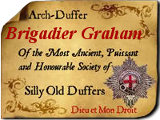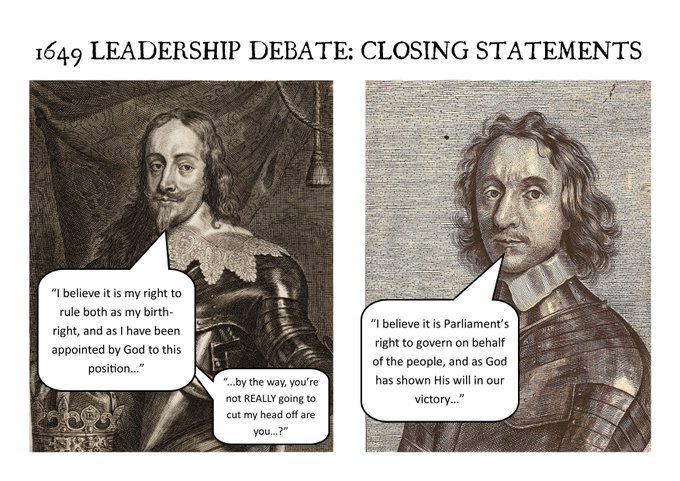7. It was a stepping stone to a political revolution.
In the New Model Army, Parliament had unwittingly created a pet bulldog that it could not control.
Once it had won the war and disposed of the king, and with no military force that could match it, the army quickly came to realise that IT carried the balance of political power and it became a hotbed of radical politics and discontent. Many, including political agitators within the army dubbed Levellers (because, their critics claimed, they wanted to bring rich and poor to the same level), demanded a greater say in government and a famous meeting called The Putney Debates in 1647 was the first time common people and their social superiors had sat down to debate the very question of the nation’s governance.
It hinged on the question of why had they fought in the first place. Surely, said leading Leveller sympathiser and friend of Cromwell Colonel Thomas Rainsborough, even the lowliest Englishman has the same right to a say in England’s affairs as the highest?
This, and The Leveller’s idealism, has echoed down the centuries ever since. Some claim them as proto-socialists, others as anarchistic radicals, but either way Putney set the terms of the argument for almost 370 years – an argument that is still going on today.
After Charles was executed in 1649, England (soon to be joined, whether they liked it or not, by Scotland and Ireland) became a republic called ‘The Commonwealth of England’. A limited form of Parliamentary democracy was now in practise and it finally seemed like the tyranny of absolute monarchs that had begun with the Norman invasion in 1066 was over...
After Cromwell’s death in 1658 it was ironically part of the army itself, led by General George Monck (who had been cunningly keeping out of things up in Scotland), that helped usher in the return of the monarchy in 1660.
But absolute monarchy had had its day in England and, following the invasion of the William of Orange’s Dutch forces in the ‘Glorious Revolution’ in 1688, England’s one and only true “revolution” came to a close with the constitutional monarchy that still stands, more or less in the same shape, today.








 Reply With Quote
Reply With Quote
































